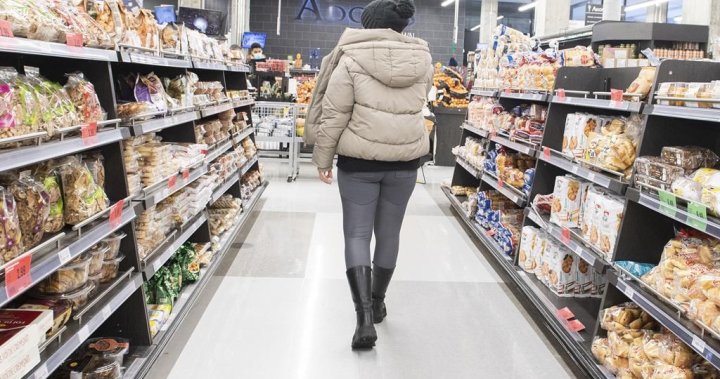More than 8 in 10 people facing financial anxiety in Quebec, survey finds | Globalnews.ca
Quebecers are feeling the pinch and the vast majority experience financial anxiety at levels that vary from mild to extreme, according to a new survey.
The survey, which was conducted by Leger for Centraide of Greater Montreal, found 85 per cent of respondents reported feeling economic stress. However, the results show that kind of anxiety remains “relatively mild” for the province’s population as a whole, with a score of 38.8 out of 100.
The wide-ranging questionnaire asked respondents about their personal situation and income, their financial literacy, concerns about different financial issues and their outlook on Canada’s economy in the next six months.
Some 42 per cent say they are dealing with moderate to extreme forms of anxiety when it comes to their financial situation. Quebecers in those categories have difficulty covering certain essential expenses on a daily basis. In fact, the survey found that about 55 per cent of young people aged 18 to 34 fall into that category.
Read more:
Inflation, interest rates, recession? Poll finds these Canadians are worrying the most
Read More
-
![]()
Inflation, interest rates, recession? Poll finds these Canadians are worrying the most
The president of Centraide points to the “ever-increasing rate of inflation” as a major source of stress among Quebecers.
“These results are consistent with what we are seeing on the ground,” Claude Pinard said in a statement issued Tuesday.
The survey also found that high levels of economic stress were more pronounced among groups that are at a higher risk of poverty. This includes respondents who identified as single parents, women and those whose households took home less than $40,000 per year.
“Just like the pandemic, the current economic situation is affecting vulnerable people the most,” Pinard said. “They are bearing the brunt of rising costs, which undermine their ability to meet basic needs, such as housing, food and transportation.”
That kind of financial stress is hard on mental health, according to Pinard. It shows in the results of the survey, too, even if 49 per cent of respondents said they didn’t experience any kind of generalized anxiety.
More than half of Quebecers, at 54 per cent, reported feeling nervous, anxious or tense in the past two weeks. Some 51 per cent of respondents said they had trouble relaxing, while 49 per cent said they became easily upset or irritable.
Read more:
‘Collateral damage’ — Recession, job losses likely as interest rates rise, study shows
About 30 per cent of those surveyed said they had trouble sleeping in the past 14 days due to their financial situation. Some 28 per cent reported difficulty concentrating at work or school and 26 per cent said there was family conflict or tension — all due to personal economic stress.
Even with the rising costs of living and high inflation, 66 per cent of respondents said their annual household income remained the same in the last six months. Meanwhile, 16 per cent say their household income fell in that time frame while 17 per cent say theirs increased.
Centraide says it will continue to measure what it calls the “first-ever financial anxiety index” in Quebec twice annually for the next three years.
The online survey, which was conducted from Aug. 25 to Sept. 20, was completed by 2,001 Quebecers aged 18 and over. Leger says it is not possible to calculate a margin of error on a panel sample, but that a maximum margin of error for a sample of the same size would be +/- 2.2 per cent, 19 times out of 20.
— with files from The Canadian Press

© 2022 Global News, a division of Corus Entertainment Inc.
For all the latest health News Click Here





